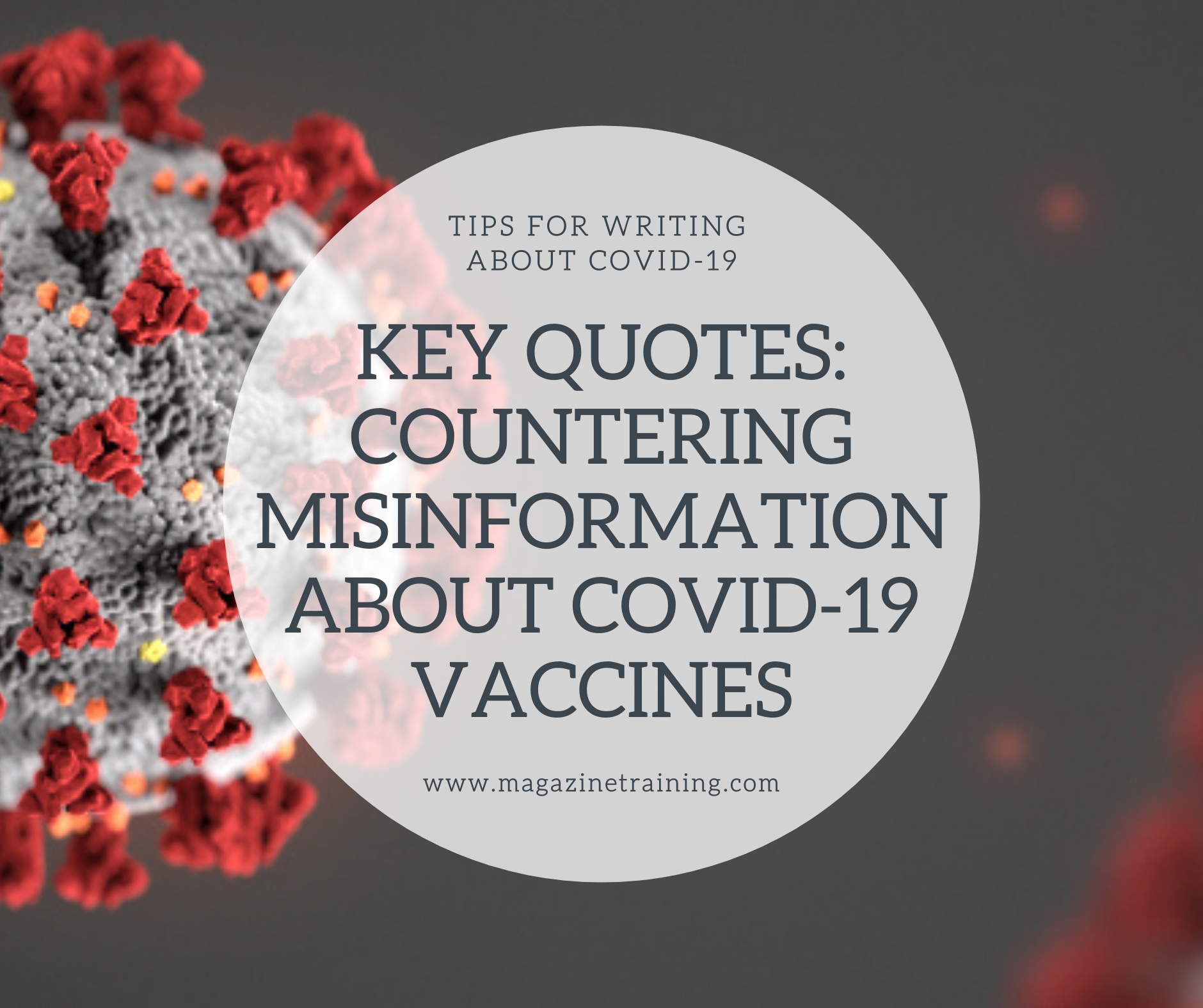
To fight false information about potential COVID-19 vaccines, newsrooms must place collaboration ahead of competition, fact-checking experts said during a panel discussion this week produced by ICFJ and the International Fact-Checking Network (IFCN).
“Collaboration is the only way out, if there is one, to fight misinformation,” said IFCN Associate Director Cristina Tardáguila, who is based in Rio de Janeiro, Brazil.
“Competition will only help misinformation,” because rushing to break news ahead of a rival news outlet too often leads to the spread of inaccuracies, she said.
“If journalists were able to collaborate more, then I think it could be seen as a public service that would restore trust in the media,” said Lee Mwiti, chief editor of ICFJ partner Africa Check, which promotes accuracy in Africa’s media and public discourse.
Tardáguila and Mwiti talked with ICFJ Director of Innovation Oren Levine about strategies for fighting misinformation and disinformation related to vaccine development.
Misinformation around COVID-19 has run rampant since January, and distrust of vaccines was a public health threat even before the global pandemic, Levine noted.
“Vaccine hesitancy – the reluctance or refusal to vaccinate despite the availability of vaccines – threatens to reverse progress made in tackling vaccine-preventable diseases,” according to the World Health Organization, which calls vaccination “one of the most cost-effective ways of avoiding disease.”
That situation is only worsening as the race to create a vaccine intensifies. Panelists shared these strategies for combating false news about potential vaccines:
Go where the false info originated
“There are times I also think we need to look more like disinformation actors,” while spreading verified news and debunking falsehoods, Mwiti said. That may attract those who saw the original video to correct information. For example, if a video loaded with misinformation goes viral, AfricaCheck will “try to counter that by also doing a video and trying to seed it into the same communities or the same channels that the original video did.”
Focus on official sources
“Do not trust your uncle on Whatsapp. Do not trust a tweet that comes from unofficial sources. It’s time to heavily use official sources,” Tardáguila said.
Be skeptical
“Stop just typing whatever people say in your interviews. We always have to be critical of what we hear, because if not, we are giving oxygen to mis- and dis-information,” Tardáguila said.
by Jennifer Dorrah, International Journalists’ Network
Related posts
Magazine Training International’s mission is to encourage, strengthen, and provide training and resources to Christian magazine publishers as they seek to build the church and reach their societies for Christ.

